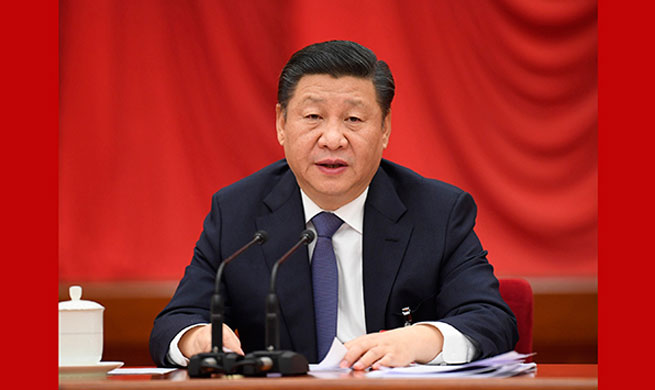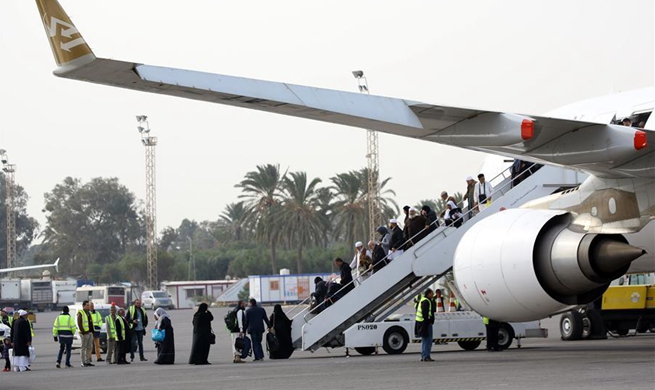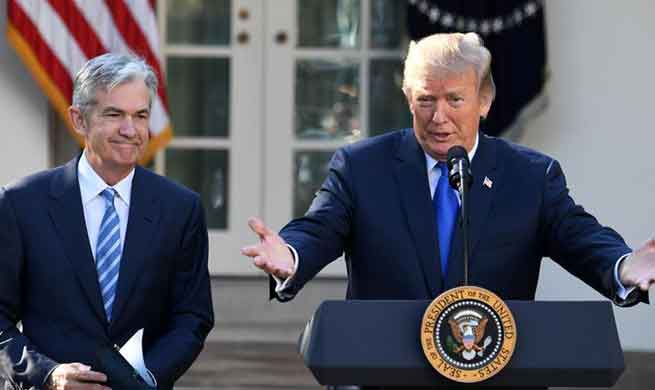By Huang Chao, Gao Lu, Xia Lin
NEW YORK, Jan. 20 (Xinhua) -- Ben Lee is not surprised to know that more U.S. students are going overseas for graduate and undergraduate education, as they want to know more about the outside world, just like the international students on U.S. campus.
"The United States is large, but the world is still much larger to explore," Lee, Associate Director of Master of Communication Management Program at the University of Southern California (USC), told Xinhua.
EUROPE ATTRACTS U.S. STUDENTS
The annual Open Doors Data released last November by the Institute of International Education of the United States (IIE) showed that 325,339 American students received academic credit last year at the home campus for studying abroad in 2015/2016, an increase of four percent from the previous year.
"Studying abroad by American students has more than tripled in the past two decades," it added.
"U.S. students studying abroad still find Europe very attractive. I think the report's data bears that out. London, Amsterdam, Barcelona and Milan, these cities are still very attractive for U.S. students," said Lee.
IIE's report said that Europe was the top host region, attracting more than half of Americans who studied abroad, followed by Latin America and the Caribbean and Asia.
"I have a lot of American friends that are right abroad or going abroad next semester here at USC. So these people are going to Europe or South America or Asia. They are usually very open-minded and they want to learn what's there in all these different countries," Romero, a graduate student from Bolivia at USC, told Xinhua.
CHINA, INDIA EMERGE STRONG
According to IIE, the top host destinations for U.S. students studying abroad in 2015/16 were the United Kingdom, Italy, Spain, France, and Germany.
Strong growth was noted in Australia, Czech Republic, Cuba, Denmark, Germany, Ireland, Japan, Mexico, the Netherlands, New Zealand and South Africa, it added.
China dropped out of the top five host countries, as the number of U.S. students studying there decreased by nine percent. However, as China has emerged strong in economy and culture in recent years, it remains a hot choice, especially for those with foresights.
"One of my professors even says that if you want to study abroad, go to China, go to India. If you want to vacation abroad, go to Europe, go to Australia," Fan Yilan, a Chinese student double majoring in accounting and economy at the University of Texas (UT) at Austin, told Xinhua.
Emerging markets like China and India have been popular at UT and USC, too.
Lee is carrying out collaboration with Shanghai Jiaotong University, which makes him fully aware how both sides need each other.
"Their school of media design has very aggressively and generously funded international students to pursue degrees there. And they have grown tremendously in the past three years. It's remarkable," said Lee.
For the academic year of 2015/16, China remained the top destination in Asia for U.S. students. Altogether 11,689 of them went to study in China in this period.
MIND OPENING AND INTERDEPENDENCE
Most U.S. students go abroad in exchange programs at the expense of the universities.
"Their parents do not directly pay their tuition for the other countries' institutions, so they usually take advantage of their universities to choose programs. Like in USC, there is a global program, so students can choose different study destinations," said Joyce Wang, a Chinese student at USC.
U.S. youth going overseas for education thriced in the past 20 years, which is widely viewed as the nation's increased awareness of the changes occurring to the world around it.
"America is realizing the importance of globalization. That's why they are trying to send more people abroad and they're really taking initiative to act like as a world leader," said Fan.
In contrast to the current U.S. administration's decision to quit global or regional trade blocs, the education surge showcases populist wisdom.
"That's great for the country and that's also great for these students to open their minds, and for future leaders of the United States to know the interdependence of the world and how the United States is not alone here," said Romero.
















